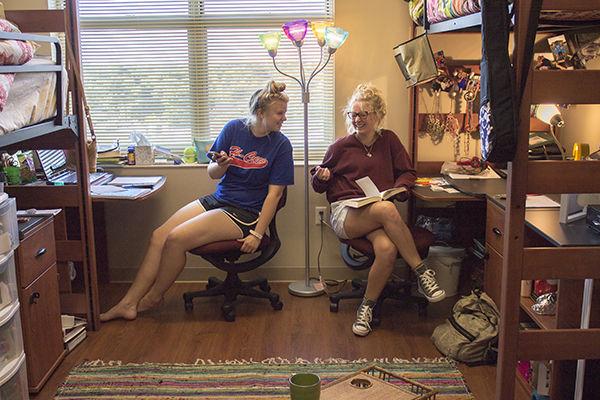As the number of cases in Brazos County continues to rise, we must follow the shelter-in-place ordinance to stay safe. You have one problem: your roommates are making this extremely difficult by going to kickbacks and inviting people into your living space.
Maybe up to this point you have tried to act like everything was chill. Maybe, you have even felt like you were a bit paranoid. The truth is, if there’s anything to be paranoid about, it is a global pandemic. Now is the time more than ever to speak up about your needs and set boundaries to protect yourself and others.
Speaking from experience, this can certainly be easier said than done. After all, these are people you have to live with even after you confront them. You are worried requesting boundaries is going to seem uncharacteristically prudish. You are worried about asking too much.
On the contrary, asking someone you live with to compromise their physical and emotional well-being so you can continue to see your friends is asking too much. You do not have to be old or among the immunocompromised to have a lot at stake here. Even for the healthiest of college students, the uncertainty, isolation and inconvenience associated (especially for those who are uninsured) with getting the virus are dire enough to consider. If you are worried about what could happen when you put your foot down, I would first ask: what could happen if you don’t do anything? Which is worse?
Before you do decide to address their behavior, it may be wise to understand the nature of this virus and why it’s important to follow CDC-recommended guidelines. Additionally, familiarize yourself with the shelter-in-place ordinance. You and your roommates don’t just “share a different opinion.” By continuously violating the guidelines of experts, they are willfully ignoring the facts and written law.
Here are some common arguments and bits of misinformation I have heard from those choosing not to “flatten the curve” and some points you can bring up to counter them:
They might say, “The coronavirus is no different than the flu, and the media has created unnecessary hysteria surrounding it.”
Though COVID-19 and the common flu share some similarities, it is important to know they differ greatly in ease of transmission, access to receive medication or vaccination, severity, the average length of hospitalization and mortality rates.
They might say, “I would never let one of my friends come here or see me if they were sick.”
Though scientists think the risk of contracting the virus is highest when one is experiencing symptoms, asymptomatic individuals are also very capable of spreading the virus. Infected individuals can be asymptomatic for up to 14 days after their initial contact.
They may say, “When my friends do come over, I can make them put on hand sanitizer and Lysol everything after they are gone.”
The (6-feet away) terms of social distancing are non-negotiable, and this is not a compromise. This suggestion completely disregards the way COVID-19 spreads: through airborne droplets that travel when sneezing, coughing and even talking from an unsafe distance. Cleaning surfaces does only half of the job to eliminate risk. If they aren’t willing to budge on inviting friends over, try to set a limit of one person they know very well per visit.
They may say, “I’m not that scared to get it. Young people don’t have to worry about dying from it.”
This one is perhaps the most troubling for me to understand. Truthfully, I am probably not as worried as I should be about contracting COVID-19. My concern, as should be theirs, is spreading the virus. The real question we have to ask ourselves as young adults is whether we are willing to put other’s well-being before our desire to socialize.
Committing to social distancing requires the ability to think more abstractly about how our actions affect other people. Unfortunately, empathy is not something that can be taught in one conversation.
Listed below are some extra precautions I would suggest for those living with roommates who continue to disregard the CDC recommendations:
- Keep the windows open as much as possible for air circulation.
- Reduce the number of shared objects with your roommates. Purchase your own reusable cups, silverware and plates. Keep these in your designated space or room. If you do share dishes, make sure to clean them thoroughly with hot water and disinfectant before use and wash your hands afterward.
- Keep a spray bottle with 70 percent or more alcohol handy to routinely spray shared surfaces — like countertops, kitchen appliances, door handles and remotes — before every use. Lysol wipes work too.
- If possible, avoid being in the shared space when your roommates (or their friends) are. Distance is your best defense. As funny as it may sound, wearing a mask when you have to share space would lessen the risk.









